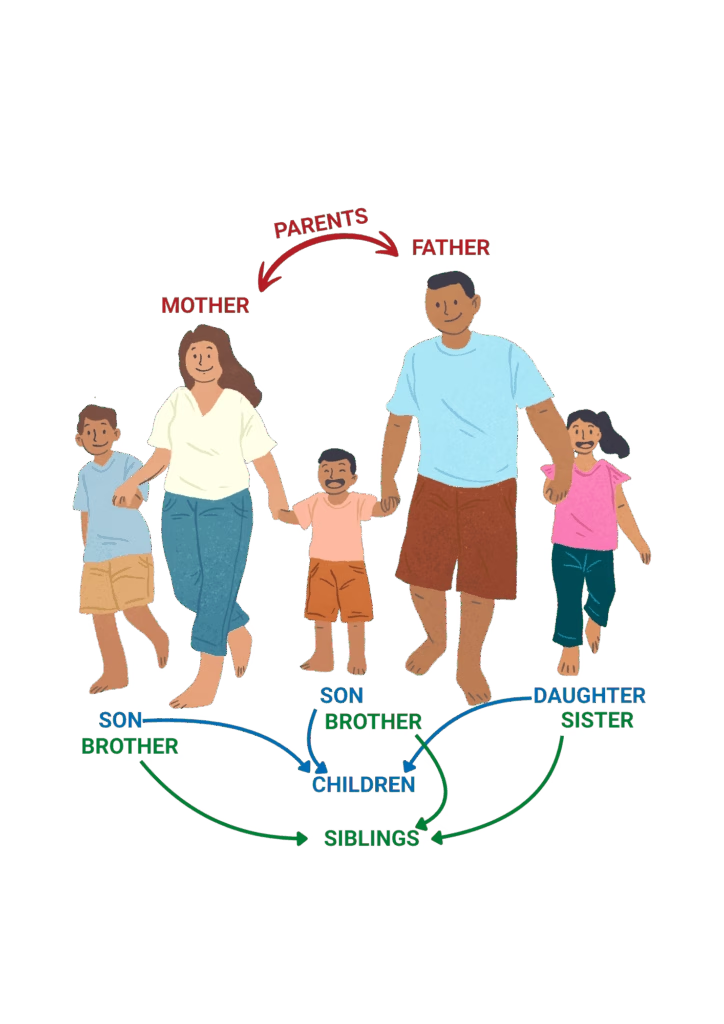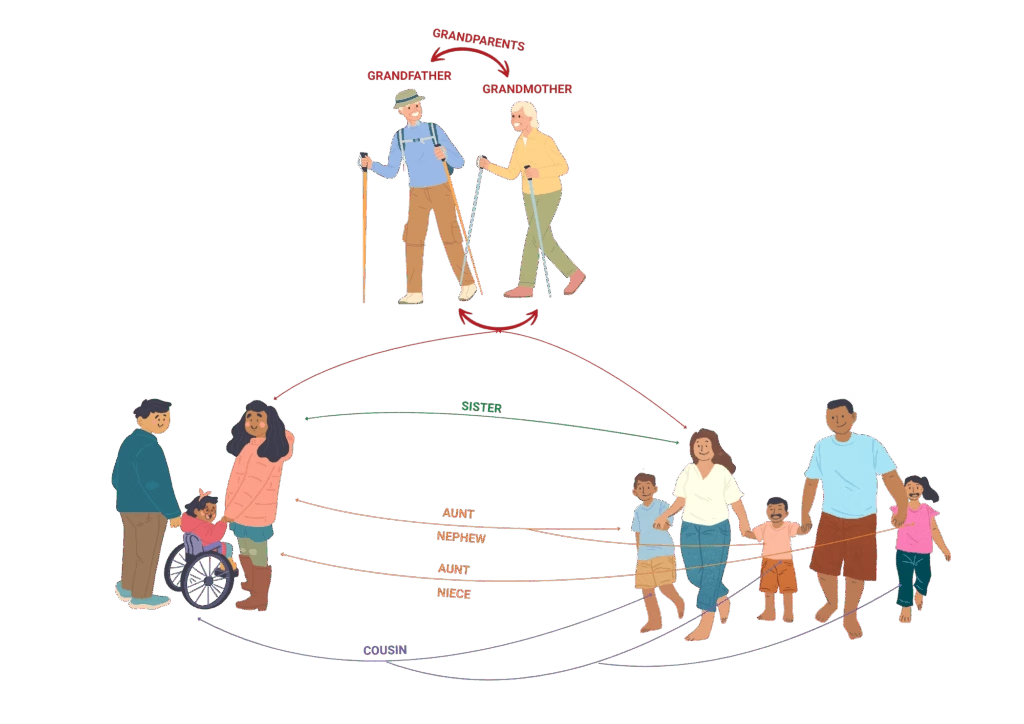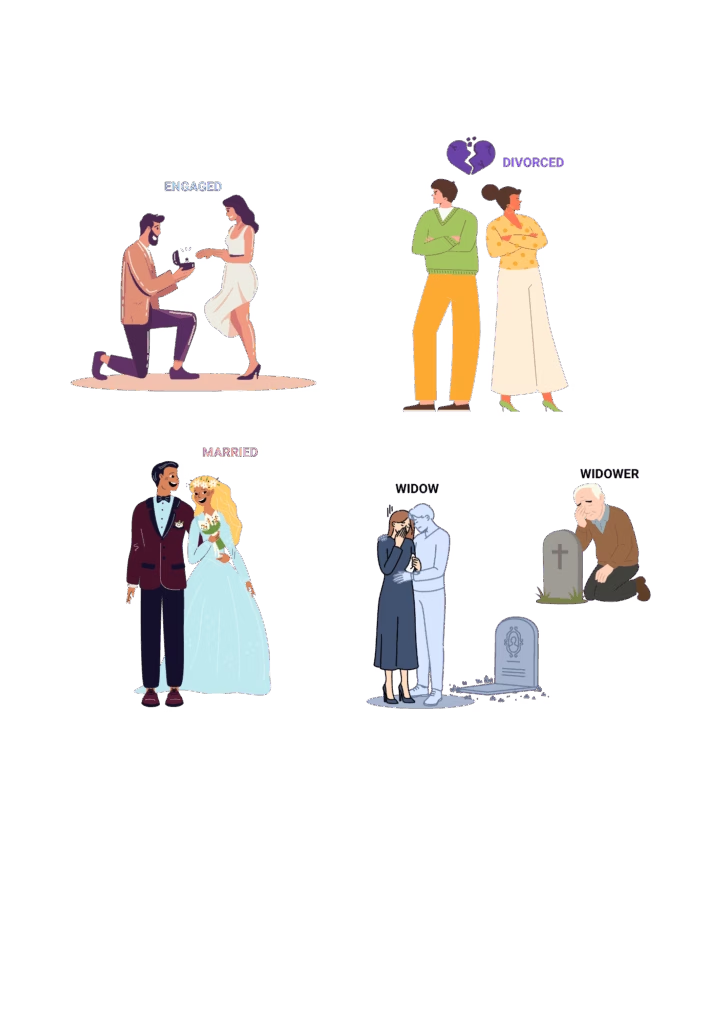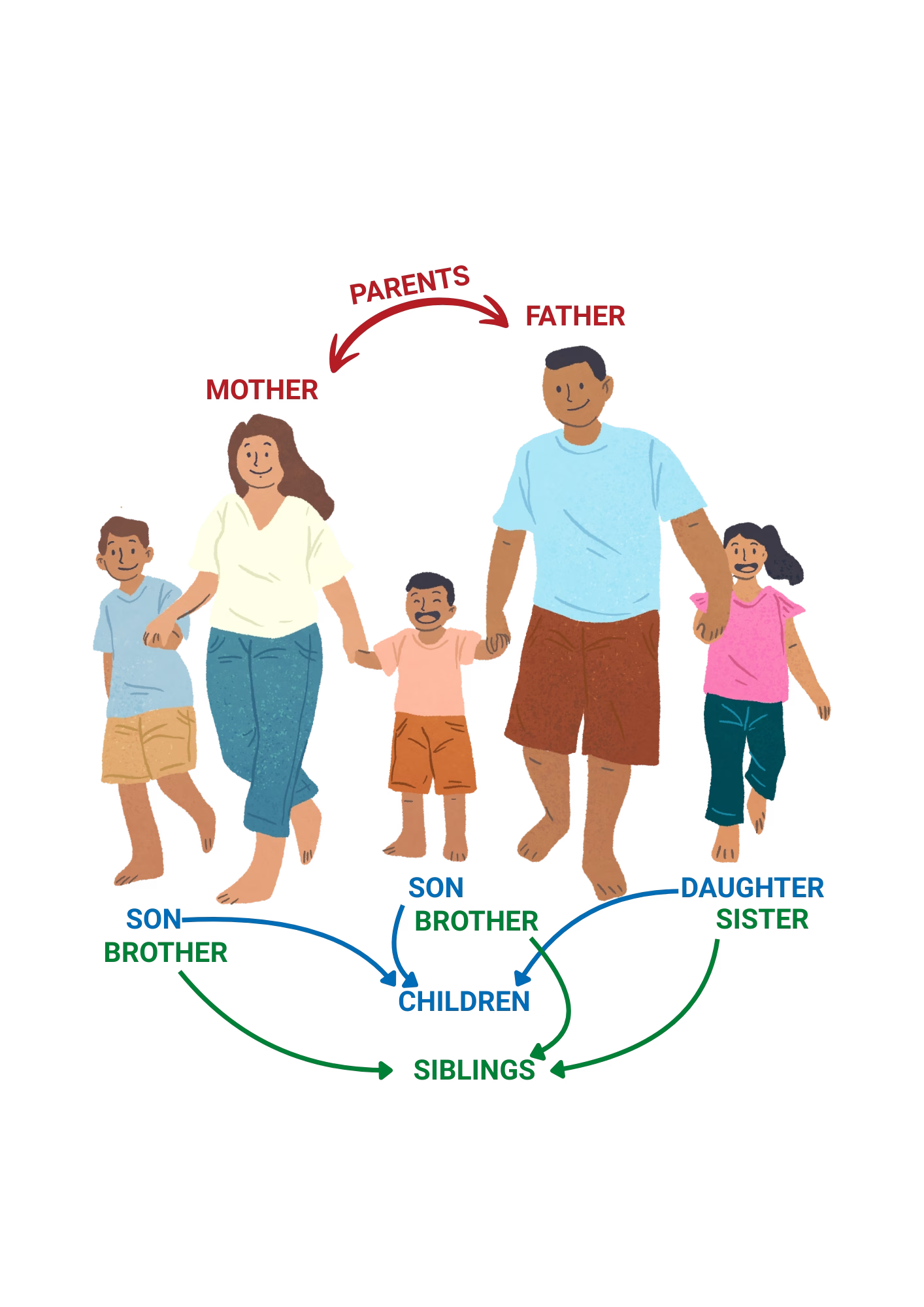Learning English vocabulary related to family is one of the most important steps for ESL (English as a Second Language) students. Whether you are introducing yourself, talking about your background, or writing about your personal life, knowing how to talk about family is essential. In this post, we will explore useful family-related vocabulary, example sentences, and a few tips to help you remember these words.
1. Immediate Family
The immediate family includes the closest relatives—usually the people you live with or are most directly related to.
- Mother – Your female parent
Example: My mother is a teacher. - Father – Your male parent
Example: My father works in a hospital. - Parents – Both mother and father
Example: I live with my parents. - Sister – A female sibling
Example: I have one older sister. - Brother – A male sibling
Example: My younger brother loves soccer. - Siblings – Brothers and sisters
Example: I have two siblings. - Son – A male child
Example: Their son is five years old. - Daughter – A female child
Example: My daughter enjoys reading. - Children – Sons and daughters
Example: They have three children.

2. Extended Family
Extended family refers to relatives who are not part of your immediate family but still closely connected.
- Grandmother – Your mother’s or father’s mother
Example: My grandmother makes delicious food. - Grandfather – Your mother’s or father’s father
Example: My grandfather tells great stories. - Grandparents – Both grandmother and grandfather
Example: We visit our grandparents every summer. - Aunt – The sister of your mother or father
Example: My aunt lives in another city. - Uncle – The brother of your mother or father
Example: My uncle is a police officer. - Cousin – The child of your aunt or uncle
Example: I have many cousins. - Niece – The daughter of your brother or sister
Example: My niece is starting school this year. - Nephew – The son of your brother or sister
Example: My nephew loves to play with blocks.

3. Describing Family Relationships
It’s also helpful to know how to describe family relationships and marital status.
- Married – Having a husband or wife
Example: My parents have been married for 20 years. - Single – Not married
Example: My sister is single. - Divorced – No longer married
Example: His parents are divorced. - Engaged – Promised to be married
Example: They are engaged to be married next year. - Widow/Widower – A person whose spouse has died
Example: She became a widow last year.

4. Talking About Family
When you talk about family, you can use these phrases:
- “I come from a big family.”
- “My family is very close.”
- “I have two brothers and one sister.”
- “My parents are very supportive.”
These phrases help you share more personal information and practice using family vocabulary in real situations.
5. Tips for Learning Family Vocabulary
- Use flashcards: Write the English word on one side and the word in your language on the other.
- Draw a family tree: Include English labels for each family member.
- Practice with friends: Talk about your own family or ask questions about others’ families.
- Watch English shows or movies: Listen for family words and try to write them down.
Final Thoughts
Family vocabulary is one of the first topics ESL students should learn because it is personal and useful in everyday conversations. By practicing these words and using them in sentences, you will become more confident when speaking or writing in English. Remember, the more you use new vocabulary, the more natural it will feel. Keep practicing, and you will improve over time.
Did you know that we have a Youtube channel? Check us out here:
